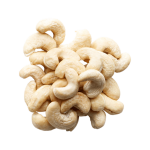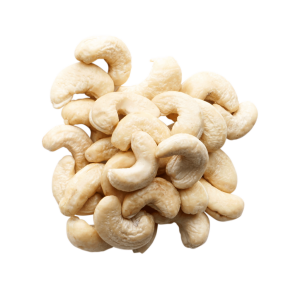ABOUT US

Global Cashew Council
A historic agreement was signed in Budapest, Hungary, May 21, 2011, by the main cashew producers, industry, the United Nations Food and Agriculture Organization (FAO), the United Nations Economic Commission for Europe (UNECE), and the International Nut and Dried Fruit Council (INC) in the name of promoting growth and sustainability of the cashew nut sector.
The Global Cashew Council aims to promote usage and consumption of cashews, initiate nutritional and health studies, promote food safety, develop quality standards, and increase awareness of the health and nutritional benefits of cashews.
List of signatories:
- International Nut and Dried Fruit Council, INC
- African Cashew Alliance, ACA
- Cashew Export Promotion Council of India, CEPCI
- Vietnam Cashew Association, VINCAS
- Sindicato das Indústrias de Beneficiamento de Castanha de Caju do Ceará, SINDICAJU
- Australian Cashew Association
- Intersnack Procurement, Netherlands
- Kraft Foods, USA
- Olam International, Singapore
- Rajkumar Impex, India
- The Richard Franco Agency, USA
- Food and Agriculture Organization of the United Nations, FAO
- United Nations Economic Commission for Europe, UNECE
GLOBAL CASHEW COUNCIL OBJECTIVES
GLOBAL CASHEW COUNCIL PAST CHAIRMEN
- Mr. Pino Calcagni, INC: May 2011-May 2015
- Mr. Arie Endendijk, Intersnack Procurement, The Netherlands: May 2015-May 2017
- Mr. Ashok Krishen, Olam International, Singapore: May 2017-October 2019
Global Cashew Council Achievements Include:
Completion of the UNECE Standard DDP-17 concerning the marketing and commercial quality control of cashew kernels, edition 2013.
- Analysis of the nutrients in cashews
A team of researchers analyzed the nutritional composition of cashew nuts from the largest growing regions. The study, supported by the Global Cashew Council, was published in the journal Food Science & Nutrition in October 2015.Rico, R., Bulló, M., & Salas‐Salvadó, J. (2016). Nutritional composition of raw fresh cashew (Anacardium occidentale L.) kernels from different origin. Food science & nutrition, 4(2), 329-338.
The study is available Open Access here.
Identification of future research priorities
- The effect of cashew nut consumption on cardiovascular disease risk factors.
- The effect of cashew nut consumption on diabetes.
- Research supported by Global Cashew Council, INC and CEPCI
Researchers at the USDA, ARS, Beltsville Human Nutrition Research Center, looked at the available energy content in cashew nuts1. Eighteen healthy volunteers were recruited to participate in this 9-week study. Participants consumed a controlled base diet supplemented with cashew nuts (42 g/day) during one treatment period of 4 weeks, or a controlled base diet with no-cashew supplementation during another treatment period of 4 weeks. Diet samples from the study, as well as feces and urine from eighteen volunteers, were collected during the final week of each intervention phase and analyzed for protein, fat and energy content. From these, researchers were able to determine the actual digestible energy content of cashews.Study results showed that the available energy (calorie) content of cashews is 16% lower than that which is typically stated on current food labels and databases in the United States, including the National Nutrient Database for Standard Reference. These must be corrected in order to provide consumers with accurate energy values. Whereas the current reported energy value is 163 kcal/serving, USDA researchers found that the metabolizable energy content of a 28 g (1 oz) serving of cashews is 137 kcal.
The study was published in the journal Nutrients in December 2018. The full study is available Open Access at https://www.ncbi.nlm.nih.gov/pmc/articles/PMC6356908/.
Another study published in The American Journal of Clinical Nutrition in February 2019 concluded that 42 g/day of cashews does not increase LDL “bad” cholesterol levels2. The study also observed that adding 42 g of cashews every day to a typical Western diet may help reduce the enzyme PCSK9, and lower PCSK9 concentrations are associated with the removal of LDL “bad” cholesterol from the blood.
The study is available at https://academic.oup.com/ajcn/article/109/2/269/5310199.
Both studies were supported by the Global Cashew Council and the INC International Nut and Dried Fruit Council.
The study funded by CEPCI “Cashew Nut Consumption Increases HDL Cholesterol and Reduces Systolic Blood Pressure in Asian Indians with Type 2 Diabetes: A 12-Week Randomized Controlled Trial” was published in The Journal of Nutrition in January 20183. The main objective of the study was to investigate the effects of cashew nut supplementation on glycemia (blood sugar), body weight, blood pressure, and lipid profile in Asian Indians with Type 2 Diabetes Mellitus (T2DM). In total, 300 adults with T2DM were included in the study and were randomly assigned to receive a standard diabetic diet (control group) or a similar diet plus 30g of cashews per day (intervention group) for 12 weeks. After 12 weeks, the study results observed that participants supplemented with 30 g/day of cashews had a greater decrease in systolic blood pressure and a greater increase in plasma HDL (“good”) cholesterol when compared with the control group.
In conclusion, this study found that regular consumption of cashews may help decrease systolic blood pressure and increase HDL (“good”) cholesterol concentrations in Asian Indians with T2DM. Cashews may also help improve low concentrations of LDL (“bad”) cholesterol, which is a cardiovascular disease risk factor.
This study is available at https://academic.oup.com/jn/article/148/1/63/4823695.
1 Baer, D., & Novotny, J. (2019). Metabolizable Energy from Cashew Nuts is Less than that Predicted by Atwater Factors. Nutrients, 11(1), 33.
2 Baer, D. J., & Novotny, J. A. (2019). Consumption of cashew nuts does not influence blood lipids or other markers of cardiovascular disease in humans: a randomized controlled trial. The American Journal of Clinical Nutrition, 109(2), 269-275.
3 Mohan, Viswanathan, et al. “Cashew nut consumption increases HDL cholesterol and reduces systolic blood pressure in Asian Indians with type 2 diabetes: a 12-week randomized controlled trial.” The Journal of nutrition 148.1 (2018): 63-69.
- Health Research Database
Find the latest studies in the fields of health and nutrition at www.cashews.org/en/health-research.

